Embark on a captivating journey into the realm of Spanish verbs ending in -ir. These dynamic verbs play a pivotal role in Spanish communication, adding color and vibrancy to everyday conversations. Join us as we unravel the intricacies of -ir verbs, exploring their conjugation, common usage, and the occasional quirks that make them so fascinating.
Prepare to immerse yourself in a world where words come alive, as we delve into the nuances of -ir verbs, unlocking their potential to express a wide range of actions, emotions, and ideas. Whether you’re a seasoned Spanish speaker or just starting your linguistic adventure, this guide will equip you with the knowledge and confidence to master these essential verbs.
Introduction: Spanish Verbs Ending In -ir
Spanish verbs ending in -ir represent a significant group of verbs within the Spanish language. These verbs follow specific patterns in their conjugation, and understanding their forms and usage is crucial for effective communication.
The -ir verb group encompasses a wide range of verbs, including regular verbs like “vivir” (to live) and irregular verbs like “pedir” (to ask). Mastering the conjugation of these verbs is essential for expressing actions, events, and states in Spanish.
Regular
ir Verbs
ir Verbs
Regular -ir verbs follow a consistent pattern in their conjugation. The infinitive form of the verb (e.g., “vivir”) is used as the base for all other forms.
- Present tense:-o, -es, -e, -imos, -éis, -en
- Preterite tense:-í, -iste, -ió, -imos, -isteis, -ieron
- Imperfect tense:-ía, -ías, -ía, -íamos, -íais, -ían
- Future tense:-iré, -irás, -irá, -iremos, -iréis, -irán
- Conditional tense:-iría, -irías, -iría, -iríamos, -iríais, -irían
Irregular
Spanish verbs ending in -ir can be a bit tricky, but with a little practice, you’ll get the hang of it. If you’re looking for a fun way to test your knowledge of Spanish verbs, check out the Fahrenheit 451 Part 1 Quiz . It’s a great way to review what you’ve learned and see how you stack up against other Spanish learners.
Once you’ve finished the quiz, be sure to come back and practice some more Spanish verbs ending in -ir.
ir Verbs
Irregular -ir verbs deviate from the regular conjugation patterns. Each irregular verb has its unique set of conjugations, which must be memorized.
- Pedir (to ask):pido, pides, pide, pedimos, pedís, piden
- Seguir (to follow):sigo, sigues, sigue, seguimos, seguís, siguen
- Vivir (to live):vivo, vives, vive, vivimos, vivís, viven
Conjugation of
ir Verbs
ir Verbs
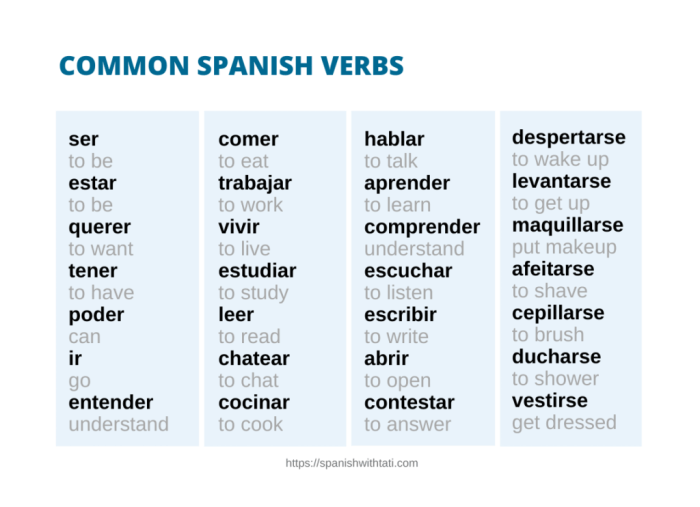
Verbs ending in -ir are one of the three regular verb conjugations in Spanish. They follow specific rules for changing their endings to match the subject and tense.
Present Tense
In the present tense, -ir verbs are conjugated as follows:
- Yo: -o
- Tú: -es
- Él/Ella/Usted: -e
- Nosotros/Nosotras: -imos
- Vosotros/Vosotras: -ís
- Ellos/Ellas/Ustedes: -en
Past Tense
In the past tense, -ir verbs are conjugated as follows:
- Yo: -í
- Tú: -iste
- Él/Ella/Usted: -ió
- Nosotros/Nosotras: -imos
- Vosotros/Vosotras: -isteis
- Ellos/Ellas/Ustedes: -ieron
Future Tense
In the future tense, -ir verbs are conjugated as follows:
- Yo: -iré
- Tú: -irás
- Él/Ella/Usted: -irá
- Nosotros/Nosotras: -iremos
- Vosotros/Vosotras: -iréis
- Ellos/Ellas/Ustedes: -irán
Conditional Tense
In the conditional tense, -ir verbs are conjugated as follows:
- Yo: -iría
- Tú: -irías
- Él/Ella/Usted: -iría
- Nosotros/Nosotras: -iríamos
- Vosotros/Vosotras: -iríais
- Ellos/Ellas/Ustedes: -irían
Subjunctive Tense
In the subjunctive tense, -ir verbs are conjugated as follows:
- Yo: -a
- Tú: -as
- Él/Ella/Usted: -a
- Nosotros/Nosotras: -amos
- Vosotros/Vosotras: -áis
- Ellos/Ellas/Ustedes: -an
Imperative Tense
In the imperative tense, -ir verbs are conjugated as follows:
- Tú: -e
- Usted: -a
- Nosotros/Nosotras: -amos
- Vosotros/Vosotras: -id
Progressive Tense
In the progressive tense, -ir verbs are conjugated as follows:
- Yo: – estoy + -iendo
- Tú: – estás + -iendo
- Él/Ella/Usted: – está + -iendo
- Nosotros/Nosotras: – estamos + -iendo
- Vosotros/Vosotras: – estáis + -iendo
- Ellos/Ellas/Ustedes: – están + -iendo
Perfect Tense
In the perfect tense, -ir verbs are conjugated as follows:
- Yo: – he + -ido
- Tú: – has + -ido
- Él/Ella/Usted: – ha + -ido
- Nosotros/Nosotras: – hemos + -ido
- Vosotros/Vosotras: – habéis + -ido
- Ellos/Ellas/Ustedes: – han + -ido
Pluperfect Tense
In the pluperfect tense, -ir verbs are conjugated as follows:
- Yo: – había + -ido
- Tú: – habías + -ido
- Él/Ella/Usted: – había + -ido
- Nosotros/Nosotras: – habíamos + -ido
- Vosotros/Vosotras: – habíais + -ido
- Ellos/Ellas/Ustedes: – habían + -ido
Future Perfect Tense
In the future perfect tense, -ir verbs are conjugated as follows:
- Yo: – habré + -ido
- Tú: – habrás + -ido
- Él/Ella/Usted: – habrá + -ido
- Nosotros/Nosotras: – habremos + -ido
- Vosotros/Vosotras: – habréis + -ido
- Ellos/Ellas/Ustedes: – habrán + -ido
Conditional Perfect Tense
In the conditional perfect tense, -ir verbs are conjugated as follows:
- Yo: – habría + -ido
- Tú: – habrías + -ido
- Él/Ella/Usted: – habría + -ido
- Nosotros/Nosotras: – habríamos + -ido
- Vosotros/Vosotras: – habríais + -ido
- Ellos/Ellas/Ustedes: – habrían + -ido
Common
ir Verbs
ir Verbs
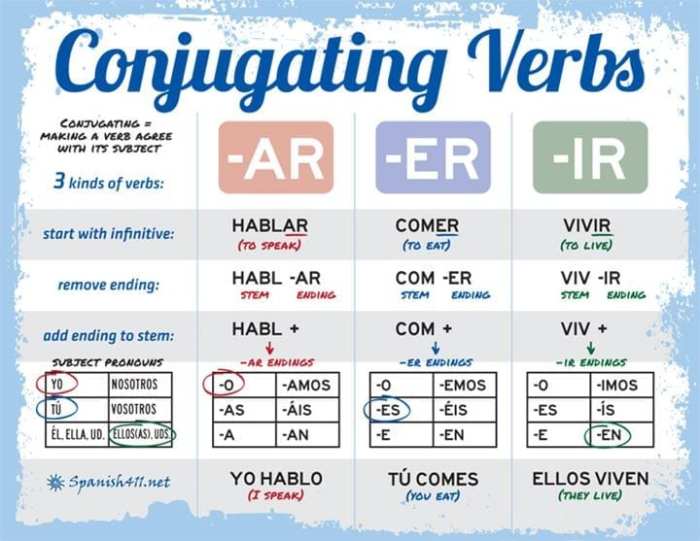
In Spanish, -ir verbs are a common group of verbs that follow specific conjugation patterns. These verbs are frequently used in everyday conversations and written communication, making it essential to understand their conjugation and usage.
Here are some of the most commonly used -ir verbs, along with their meanings and example sentences:
List of Common
ir Verbs
ir Verbs
- Vivir (to live):Yo vivo en una casa grande. (I live in a big house.)
- Comer (to eat):Me gusta comer pizza. (I like to eat pizza.)
- Beber (to drink):Bebo agua todos los días. (I drink water every day.)
- Escribir (to write):Escribo cartas a mi familia. (I write letters to my family.)
- Hablar (to speak):Hablo español y inglés. (I speak Spanish and English.)
- Leer (to read):Leo libros todos los días. (I read books every day.)
- Correr (to run):Corro todos los días. (I run every day.)
- Saltar (to jump):Salto la cuerda todos los días. (I jump rope every day.)
- Bailar (to dance):Me gusta bailar salsa. (I like to dance salsa.)
- Estudiar (to study):Estudio mucho para mis exámenes. (I study hard for my exams.)
Irregular
ir Verbs
ir Verbs
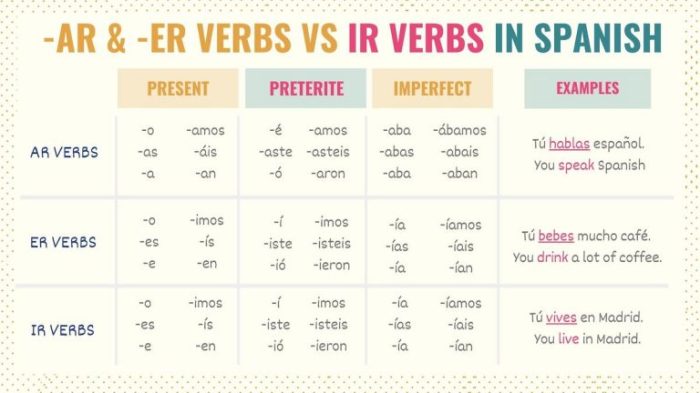
Irregular -ir verbs are verbs that do not follow the regular conjugation pattern of -ir verbs. These verbs have unique conjugations that must be memorized.
Common Irregular
ir Verbs
ir Verbs
Some of the most common irregular -ir verbs include:
- dormir(to sleep)
- morir(to die)
- pedir(to ask for)
- seguir(to follow)
- sentir(to feel)
- venir(to come)
- vivir(to live)
Conjugation of Irregular
ir Verbs
ir Verbs
The following table shows the conjugations of the regular -ir verb hablar(to speak) and the irregular -ir verb dormir(to sleep):
| Person | Regular (-ir) | Irregular (-ir) |
|---|---|---|
| yo | hablo | duermo |
| tú | hablas | duermes |
| él/ella/usted | habla | duerme |
| nosotros/nosotras | hablamos | dormimos |
| vosotros/vosotras | habláis | dormís |
| ellos/ellas/ustedes | hablan | duermen |
Uses of
ir Verbs
ir Verbs
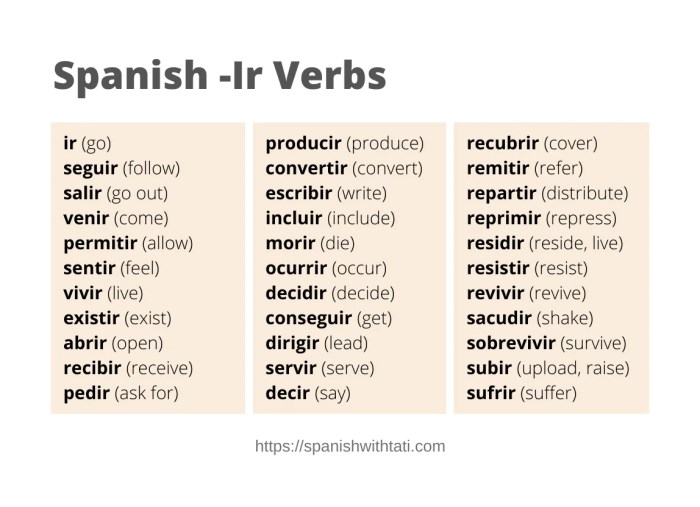
Spanish verbs ending in -ir have a wide range of uses, from expressing actions to describing states of being.
Expressing Actions
- Physical actions: Vivir(to live), hablar(to speak), comer(to eat)
- Mental actions: Pensar(to think), creer(to believe), entender(to understand)
- Communicative actions: Decir(to say), escribir(to write), leer(to read)
Describing States of Being, Spanish verbs ending in -ir
- Permanent states: Ser(to be), estar(to be), existir(to exist)
- Temporary states: Sentirse(to feel), parecer(to seem), gustar(to like)
Other Uses
- Expressing desires: Querer(to want), desear(to desire), necesitar(to need)
- Indicating obligation: Tener que(to have to), deber(to must)
- Forming the future tense: Ir a(to be going to) + infinitive
Exercises
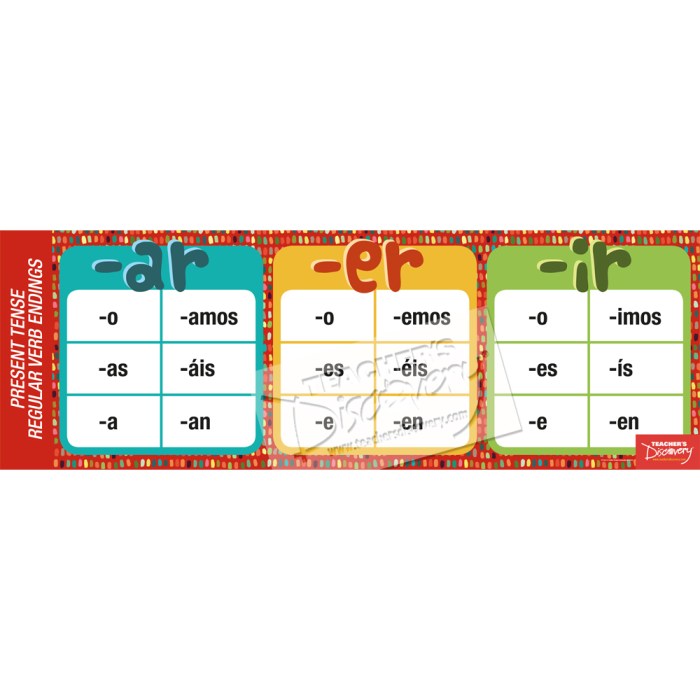
Sharpen your -ir verb skills with these interactive exercises designed to enhance your conjugation and usage proficiency.
Dive into a variety of exercises, including multiple-choice questions to test your understanding, fill-in-the-blank exercises to practice applying your knowledge, and sentence translation exercises to solidify your grasp of -ir verbs in context.
Multiple-Choice Questions
- Select the correct conjugation of “vivir” (to live) in the present tense, first person singular:
- vivo
- vives
- vive
- vivimos
Fill-in-the-Blank Exercises
- Complete the sentence by filling in the blank with the correct form of “partir” (to leave):
Los estudiantes _________ (partir) a las 8:00 de la mañana.
Sentence Translation Exercises
- Translate the following sentence into Spanish using the correct form of “seguir” (to continue):
I will continue to study Spanish.
Answers to Common Questions
What are-ir verbs in Spanish?
Spanish verbs ending in -ir are a group of verbs that share a common conjugation pattern and are characterized by their infinitive form ending in -ir.
How do you conjugate-ir verbs?
The conjugation of -ir verbs follows specific rules that vary depending on the tense and person. Generally, the stem of the verb is modified by adding different endings to indicate the subject and tense.
What are some common-ir verbs?
Some of the most commonly used -ir verbs include vivir (to live), escribir (to write), and abrir (to open).
Are there any irregular-ir verbs?
Yes, there are a few irregular -ir verbs that do not follow the standard conjugation patterns. These verbs have unique conjugations that need to be memorized.